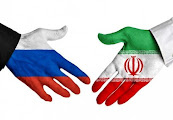Pakistan Stock Exchange (PSX) witnessed bullish sentiments
throughout the week ended on October 25, 2024. The benchmark KSE-100 index recorded
its highest-ever closing, just shy of the 90,000 mark ‑ closing at 89,994 points,
up by 5.6%WoW.
This marked the highest weekly return in 27 weeks and 47th
highest weekly return since the index's inception.
More importantly, KSE30 index also reached all-time high at
28,395 points.
The week started with positive momentum buoyed by settlement
of political noise following the passage of stalled 26th Constitutional
Amendment.
The optimism consolidated with swing of corporate result
announcements and favorable economic developments.
According to AKD Securities, the rally was broad-based, with
80 out of 100 companies delivering positive returns.
Leading sectors were Fertilizer, Cement, and Banks,
primarily due to strong annual growth in results. On the macro front, current
account posted a surplus for the second consecutive month at US$115 million for
September 2024.
Foreign exchange reserves held by State Bank of Pakistan (SBP)
increased by US$18 million to US$11.0 billion as of October 18, 2024.
Market participation also improved significantly, with
average daily traded volume rising by 23%WoW to 532 million shares from 432 million
shares a week ago.
The PKR remained stable against the greenback, closing the
week at 277.6 to a US$.
Other major news flows during the week included: IT exports
surged 42%YoY in September 2024, 2) Banking sector deposits were up by 19%YoY
to PKR31.3 trillion at end September 2024, 3) Sales tax on tractors hiked to
14% from 10%, 4) Loans to private sector were up 4.9% to PKR8.4 trillion at end
September 2024, and 5) Nepra approves KE's generation tariff with key
adjustments.
Cement, Refinery, and Mutual Funds were amongst the top
performers, while Modarabas, Textile composites, and Vanaspati & allied
industries were amongst the worst performers.
Major net selling was recorded by Foreigners with a net sell
of US$16.4 million. Mutual Funds and other organizations absorbed most of the
selling with a net buy of US$20.4 million.
Top performing scripts of the week were: KOHC,CHCC, AICL,
KEL, and ATRL, while laggards included: ILP, PIBTL, LOTCHEM, IBFL, and NESTLE.
Market is expected to remain positive, with primary focus on
the upcoming MPC meeting, where an anticipated rate cut could further bolster
market momentum.
Despite the recent rally, valuations remain attractive, with
the market trading at a P/E of 4.0x and offering a dividend yield of 11.2%.
AKD Securities recommends focusing on sectors that stand to
benefit from monetary easing and structural reforms, particularly
high-dividend-yield stocks that are likely to re-rate as yields converge with
fixed-income returns.
Top picks include, OGDC, PPL, MCB, UBL, MEBL, FFC, PSO,
LUCK, MLCF, FCCL and INDU.






